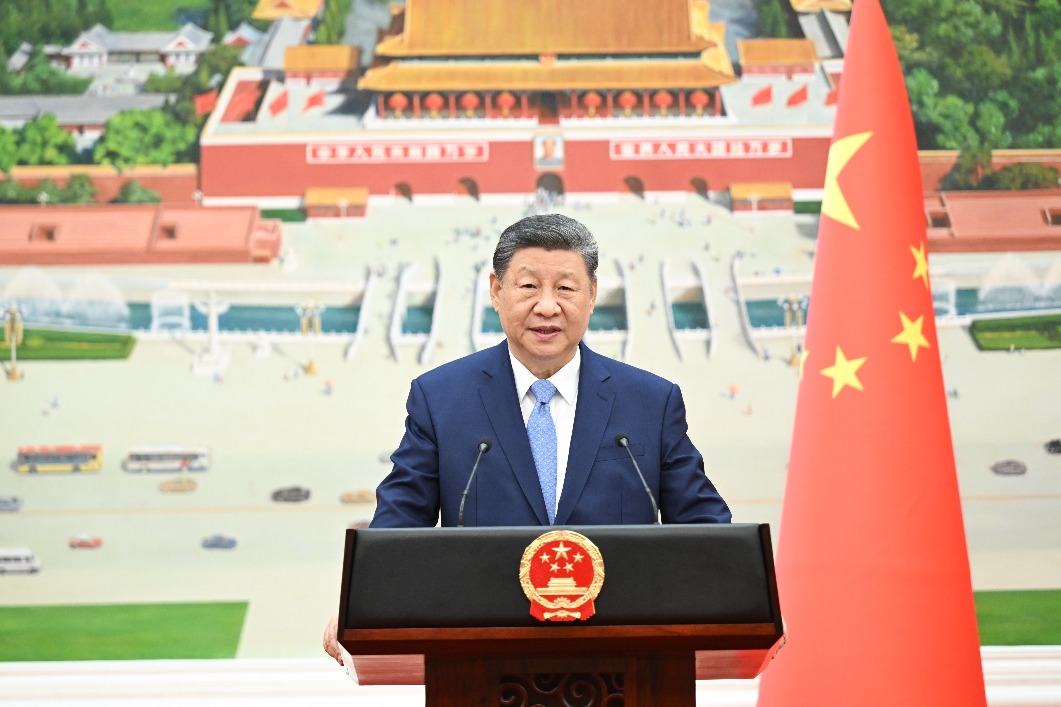Britain tops up on vaccine purchases
Govt to buy 90m doses against backdrop of rising job losses caused by pandemic

The British government has agreed to buy 90 million doses of novel coronavirus vaccines being developed by the pharmaceutical companies BioNtech, Pfizer, and Valneva, despite the jabs not yet being proved to work.
The deal, which was announced on Monday, is in addition to one the government reached for 100 million doses of a vaccine being developed by AstraZeneca and the University of Oxford.
The United Kingdom has invested heavily in the development of a vaccine that protects against the novel coronavirus, and has said social distancing, frequent hand-washing, and the wearing of face masks must remain in place until such a vaccine can be developed.
However, it is still uncertain which of the experimental vaccines may work.
Kate Bingham, the leader of the government's Vaccine Taskforce, told the BBC: "The fact that we have so many promising candidates already shows the unprecedented pace at which we are moving, but I urge against being complacent or over-optimistic."
She said it is still possible that none of them will end up working, or that what is found "may not be a vaccine which prevents getting the virus, but rather one that reduces symptoms".
Bingham added that it is likely different vaccines will be needed for different groups of people.
Education Secretary Gavin Williamson, who is preparing for the return of all students to schools in September, said on the BBC's Breakfast program that a vaccine will likely not be ready until early next year.
Online recruitment
The government is planning to launch an online recruitment process to find half a million people to take part in clinical trials for at least eight potential vaccines.
Chris Whitty, the government's chief medical officer, said: "Now that there are several promising vaccines on the horizon, we need to call again on the generosity of the public to help find out which potential vaccines are the most effective."
While the work to find a vaccine capable of protecting people from novel coronavirus infection continues, there has been a breakthrough in the way COVID-19 patients are treated.
Southampton-based biotech company Synairgen said the preliminary results of a clinical trial on a treatment that employs a protein called interferon beta appear to show the number of COVID-19 patients needing treatment in an intensive care unit can be cut by almost 80 percent.
Patients reportedly take the protein by inhaling it with the help of a nebulizer.
Synairgen claims patients who use the treatment are two to three times more likely to recover than those who do not. And that average hospital stays can be reduced to six days from nine.
The potential treatment has not yet been independently analyzed but, if it is found to be successful, will need approval before it can be used in hospitals.
In the meantime, while the wait for a vaccine and new treatments continues, a major part of the fight against the novel coronavirus remains the test and trace program that helps the authorities locate people who have been in contact with an infected person.
The coronavirus pandemic continues to hit the UK's economy, with many companies announcing layoffs after months of reduced incomes.
The latest high-profile enterprise to announce job losses was Marks & Spencer, which said on Monday it will shed 950 jobs from its workforce of 78,000.
The announcement follows high street giants John Lewis and Boots reporting 1,300 and 4,000 job losses respectively. And Topshop, furniture chain Harveys, and menswear retailer TM Lewin have also recently unveiled job cuts.































